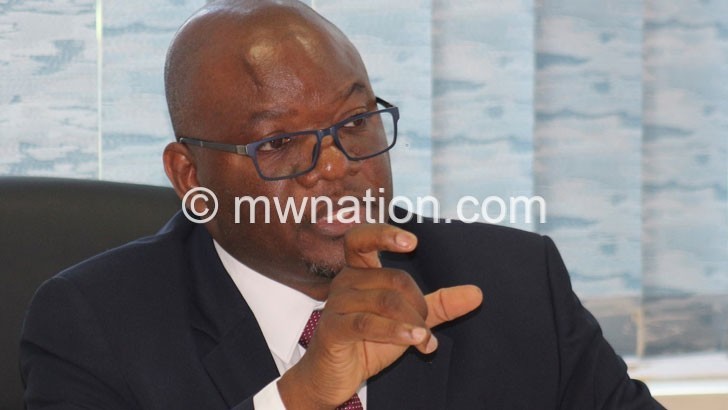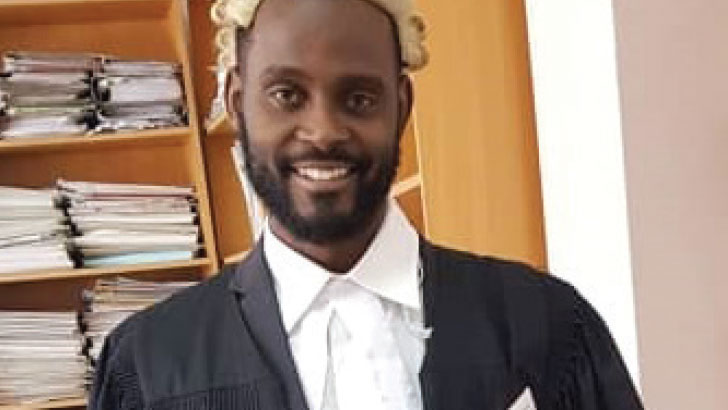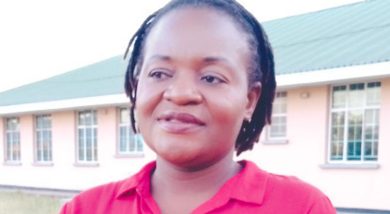Death penalty verdict’s dilemma
Three months after the Supreme Court of Appel declared the death penalty unconstitional, there has been no movement on implementation of the judgement.
The court ruled on April 28 this year that death penalty was unconstitutional and ordered Charles Khoviwa to be granted a new sentencing hearing within 21 days.

Khoviwa is one of nine convicts who were on death row and were denied resentencing hearing after the High Court declared mandatory death sentence unconstitutional in the Kafantayeni and others versus Attorney General (AG) case in 2007.
The recent Supreme Court ruling also declared all offences that carry a maximum of death penalty in the statute to now read as having a maximum penalty of life imprisonment.
Further, the court ordered the Legal Aid Bureau to include in the legal aid an urgent and immediate application for the eight other prisoners on death row, but were denied a right to a resentencing hearing to be released on bail with or without a bond.
However, the High Court in Zomba refused to hear bail applications of eight convicts affected by the Khoviwa case ruling.

In his six-page ruling, Justice Texious Masoamphambe argued that he could not entertain the bail application as sought by the parties because the Khoviwa decision was not perfected as per Section 40 (1) of the Criminal Procedure and Evidence Code (CP&EC).
The delay in implementation of the Supreme Court ruling has enraged human rights and social justice activists who are arguing that the delayed justice in the Khoviwa decision begot injustice.
Director of Public Prosecutions (DPP) Steven Kayuni said since the rendering of the Khoviwa decision by justices of the Supreme Court, the decision by Justice Masoamphambe followed that a perfected copy would give proper guide on the resentencing.
“Until then, we duly respect the honourable court decision and wait,” he said.
On his part, Secretary for Justice and Solicitor General Reyneck Matemba said the issue had taken long because they still do not have an official and perfected copy of the judgement, and they were waiting from the court.
“That perfected copy up to this day has not been issued, so normally we do not comment on a draft copy,” said Matemba.
But social justice activist Alexious Kamangila described the situation as unfortunate “and dreadful to the rule of law”.
“First of all, the High Court’s finding in the bail applications raises serious legal questions, as clearly the Judge himself on the point of law; hence made an erroneous decision,” he said.
Kamangila said, according to practice direction, 14 days after a decision has been made, it is deemed perfected and “that is the Supreme Court’s procedure.”
He said: “Secondly, and more importantly, the judge cites Section 140 of the CP&EC, which in its preamble sections clearly indicates that it shall be applicable only to the High Court and subordinate court, thereto. It is, hence; scandalous that the judge decided as such. One wonders whether there are attempts to undermine or interfere with the law in Khoviwa’s decision.”
However, High Court and Supreme Court of Appeal registrar Gladys Gondwe said in an interview that the High Court in Zomba made its judicial decision which if any party is aggrieved with, “they are at liberty to seek judicial redress through an appeal or seeking interpretation”.
A legal practitioner, who sought anonymity, said the delay was raising eye-brows because by now the Ministry of Justice would have started processes to repeal the law.
She said: “In the event a law has been declared unconstitutional, it immediately triggers an amendment and the Ministry of Justice was supposed to formally amend that law. In this case, death penalty is in the Penal Code as such, that law was supposed to be repealed.”
On his part, Malawi Law Society (MLS) president Patrick Mpaka said the Ministry of Justice has or ought to have a Law Revision Officer who works under the direction of the Attorney General (AG) to maintain and revise laws from time to time.
After the Supreme Court of Appeal determination, Malawi became the 22nd country in Africa to abolish capital punishment. However, despite the death penalty being in the statutes, the country’s presidents in the multiparty era refused to sign for death warrant.





